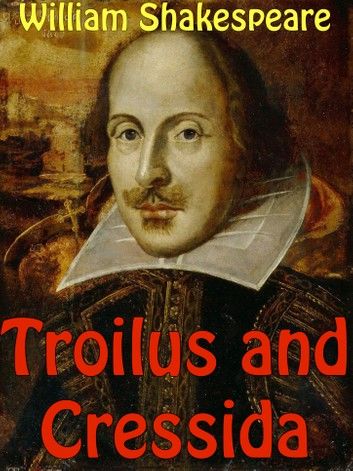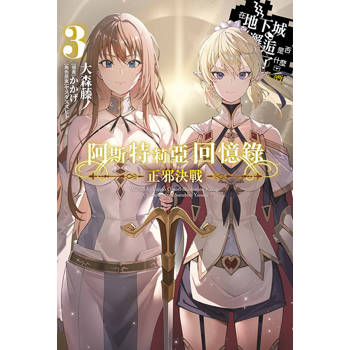| FindBook |
有 1 項符合
Troilus and Cressida的圖書 |
 |
Troilus and Cressida 作者:William Shakespeare 出版社:Castrovilli Giuseppe 出版日期:2014-01-21 語言:英文 |
| 圖書館借閱 |
| 國家圖書館 | 全國圖書書目資訊網 | 國立公共資訊圖書館 | 電子書服務平台 | MetaCat 跨館整合查詢 |
| 臺北市立圖書館 | 新北市立圖書館 | 基隆市公共圖書館 | 桃園市立圖書館 | 新竹縣公共圖書館 |
| 苗栗縣立圖書館 | 臺中市立圖書館 | 彰化縣公共圖書館 | 南投縣文化局 | 雲林縣公共圖書館 |
| 嘉義縣圖書館 | 臺南市立圖書館 | 高雄市立圖書館 | 屏東縣公共圖書館 | 宜蘭縣公共圖書館 |
| 花蓮縣文化局 | 臺東縣文化處 |
|
|
Troilus and Cressida is a tragedy by William Shakespeare, believed to have been written in 1602. It was also described byFrederick S. Boas as one of Shakespeare's problem plays. The play ends on a very bleak note with the death of the noble TrojanHector and destruction of the love between Troilus and Cressida. Throughout the play, the tone lurches wildly between bawdy comedy and tragic gloom, and readers and theatre-goers have frequently found it difficult to understand how one is meant to respond to the characters. However, several characteristic elements of the play (the most notable being its constant questioning of intrinsic values such as hierarchy, honour and love) have often been viewed as distinctly "modern", as in the following remarks on the play by author and literary scholar Joyce Carol Oates:
Troilus and Cressida, that most vexing and ambiguous of Shakespeare's plays, strikes the modern reader as a contemporary document—its investigation of numerous infidelities, its criticism of tragic pretensions, above all, its implicit debate between what is essential in human life and what is only existential are themes of the twentieth century. ... This is tragedy of a special sort—the "tragedy" the basis of which is the impossibility of conventional tragedy.
In the seventh year of the Trojan War, a Trojan prince named Troilus falls in love with Cressida, who is the daughter of Calchas, a Trojan priest who has defected to the Greek side. Troilus is assisted in his pursuit of her by Pandarus, Cressida's uncle. Meanwhile, in the Greek camp, the Greek general, Agamemnon, wonders why his commanders seem so downcast and pessimistic. The wise and crafty Ulysses informs him that the army's troubles spring from a lack of respect for authority, brought about by the behavior of Achilles, the greatest Greek warrior, who refuses to fight and instead spends his time sitting in his tent with his comrade (and dearest friend) Patroclus, mocking his superiors. Shortly thereafter, a challenge to single combat arrives from Prince Hector, the greatest Trojan warrior, and Ulysses decides to have Ajax, a headstrong fool, fight Hector instead of Achilles, in the hopes that this snub will wound Achilles's pride and bring him back into the war.
In Troy, the sons of King Priam debate whether it is worthwhile to continue the war—or whether they should return Helen to the Greeks and end the struggle. Hector argues for peace, but he is won over by the impassioned Troilus, who wants to continue the struggle. In the Greek camp, Thersites, Ajax's foul-mouthed slave, abuses everyone who crosses his path. His master, meanwhile, has been honored by the commanders over the sulking Achilles, and is to fight Hector the next day.
That night, Pandarus brings Troilus and Cressida together, and after they pledge to be forever true to one another, he leads them to a bedchamber to consummate their love. Meanwhile, Cressida's father, the treacherous Trojan priest Calchas, asks the Greek commanders to exchange a Trojan prisoner for his daughter, so that he may be reunited with her. The commanders agree, and the next morning—to Troilus and Cressida's dismay—the trade is made, and a Greek lord named Diomedes leads Cressida away from Troy. That afternoon, Ajax and Hector fight to a draw, and after Hector and Achilles exchange insults, Hector and Troilus feast with the Greeks under a flag of truce. As the camp goes to bed, Ulysses leads Troilus to the tent of Calchas, where the Trojan prince watches from hiding as Cressida agrees to become Diomedes's lover.
The next day, in spite of unhappy premonitions from his wife, sister, and his father, Hector takes the field, and a furious and heartbroken Troilus accompanies him. The Trojans drive the Greeks back, but Patroclus is killed, which brings a vengeful Achilles back into the war, finally. Achilles is unable to defeat Hector in single combat, but he later catches Hector unarmed and, together with a gang of Greek warriors, slaughters him. Achilles then drags Hector's body around the walls of Troy, and the play ends with the Trojan warriors retreating to the city to mourn their fallen hero.
|











